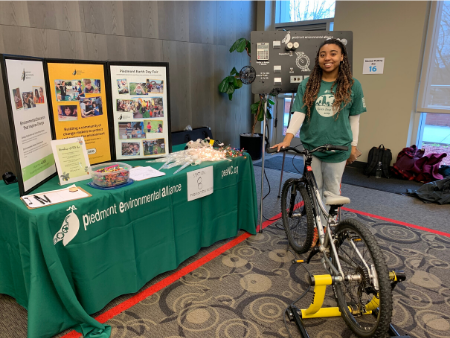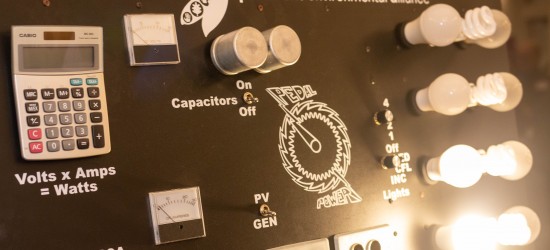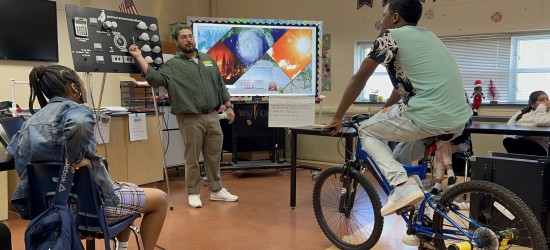Interactive learning with impact
Energy Explorers is a hands-on education program that teaches kids how energy is created, its effects on the environment and the importance of conservation. Students get a taste for environmental stewardship and leave the program motivated to make changes to their daily habits. The program is geared toward students in 4th – 9th grades, but can be customized for all ages.
Thanks to our partnership with Winston-Salem/ Forsyth County Schools, PEA provides the program in 7th grade classrooms across the county.
Energy Explorers is provided free of charge to non-profit groups, schools and libraries, thanks to the generous support of Duke Energy, the James G. Hanes Memorial Fund, the Lovett Foundation, Twin City Garden Club, and Reynolda Rotary Club.
Interested in bringing Energy Explorers to your classroom or group?
Want to bring Energy Explorers to your classroom via video?
Watch Energy Explorers On-Demand
Want to volunteer in-classroom as an environmental educator?
Sign up to volunteer
Engaging with Students across Forsyth County
In 2024-2025 Energy Explorers impacted:
- 1,600+ students across 14+ schools and camps
- 100% of students participating demonstrated increased knowledge about energy consumption and conservation
- 100% of teachers participating said they would recommend the program to other teachers and classrooms.

Feedback from Teachers and Students
"My students talked about how they went home and made adjustments in their "energy consumption" lifestyle. They learned a great deal in the one-class period program. We really enjoyed it!"
"Innovative presentation that involved students' input and kept them actively engaged mentally and physically. I was thoroughly impressed and kids are talking about what they have done at home to conserve energy at home."
"Our students learned a lot and had so much fun with the activities."
"I learned a lot of exciting things, like about energy vampires and how you can plug something in and waste a lot of energy from that."
Curriculum Overview
What makes the lights go on?
- Where does our energy come from?
- What is a power plant?
- How do generators work?
Renewable and Nonrenewable Energy
-
What are other ways to create energy, besides coal?
-
What are the differences between renewable and nonrenewable energy resources?
-
What are the advantages and disadvantages of each, such as to human health?
Climate Change
- What is climate change and how does it affect people in North Carolina?
- How does energy use contribute to climate change?
- What actions can we take to support climate resilience and reduce carbon emissions?
Pedal Power display
- Student volunteers become the “Power Plant” and create electricity on our human-powered energy bike. Students demonstrate the energy required to power incandescent, CFL and LED light bulbs. We discuss energy efficiency and conservation, and calculate the cost savings of more efficient bulbs.
- Students test their ability to create enough energy to power the lights, a fan, and charge a cell phone, demonstrating the concept of brown-outs and black-outs.
Energy Vampires and Kilowatt Meters
- Which household items use energy even when they are not in use? How much energy can we save by unplugging or powering down these items?
- Students use kilowatt meters to test their assumptions about energy usage. Which items require more energy? Using the current kilowatt-hour rate, we can calculate the potential cost savings by conserving and being more energy efficient.
Standards
In seventh grade classrooms, this curriculum addresses the NC Standard Course of Study standards PS.7.2 & ESS.7.2. Modifications to any grade level and school curriculum can be accomodated when scheduling Energy Explorers for the classroom.

